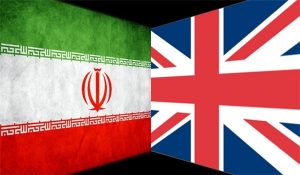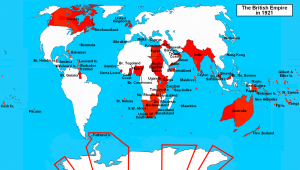The British Labour Party Uses Humanitarian Assistance as a Means of International Diplomacy In the Twenty-First Century
In Pakistan, Mohammed Ali Jinnah became the Governor- General. Lord Mountbatten served briefly as the Governor- General of India where Nehru became the Prime Minister. Gandhi, who had mobilized the masses behind Congress and had campaigned to the last to avoid communal violence, was assassinated by a Hindu extremist five month after independence. Jinnah died towards the end of 1949.
The Progress towards the independence of India, opened the way to all the colonies first in Asia, then in Africa, and finally in the other parts, for advancing towards independence. There were subsequent movements towards independence in Burma and Ceylon in Asia. As for Burma, it never allowed the British fully to reinstate themselves after the defeat of the Japanese. It could be said that the abrupt defeat of the British at Singapore in 1942 became an encouragement for all the colonies to struggle for their independence. Professor Carrington has put it this way: “The capture of Singapore by the Japanese in February, 1942 was a far greater disaster to the Empire as a whole and, accordingly to the British as an imperial power, than the evacuation of Dunkirk.20 Burma became a republic in January 1948. Quite a few of the colonies in Asia were experienced politically, such a Ceylon and Malaya. Therefore, Britain had no objection to their movement to independence. For example, Ceylon’s progress towards independence was not dramatic.
Similar patterns of granting independence to India took place in other Asian colonies. However, the process of attaining political independence for the colonies in other parts of the British Empire, such as East Africa and elsewhere, was not as smooth as the way the Asian colonies gained their full nationhood. This was mainly because the policymakers in London were reluctant to recognise the legitimacy of the local nationalist leaders.
By 1951 when the Labour Government was defeated at the General Election, a gigantic transformation had already taken place in the empire. The Labour Government had effectively transferred power to about 500 million people.
However, as Professor Partha Gupta has said, “an oversimplified or sentimental view of the Labour’s colonial policy should not be taken.”21 He continued by pointing out that “considerations of national and imperial self-interest, especially in relation to defence and to the needs of the British economy, helped to determine Labour’s policy in Malaya, Ceylon, East Africa, the proposed Central African Federation, and elsewhere, between 1945 and 1951.”22
When the Labour Government came to office, in 1945, Britain was still involved in vast areas of the world- the Far East, the Middle East, Europe, and elsewhere, but she was facing mounting economic pressures. Therefore, having had a substantial programme of domestic reforms ahead of it, the incoming Labour Government struggled to decide on Britain’s future role. As Bernard Porter has put it, Labour’s plan for the decolonisation of the Empire was “the letting go of what, after a war, just could not be held.”23



